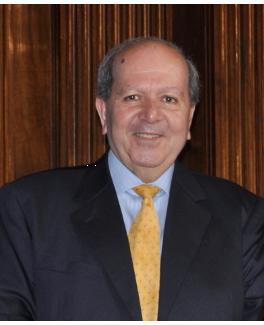The impact of WTO accession on the economies of the Gulf States has been very substantial, and the effects of it in the future are likely to be even greater. Not only have the structures of, and effective operation and management of, the domestic economies been critically affected, but also the balance between the different economies, the way in which they all relate to the rest of the world, and the potential for development. It is already clear that there are major winners and losers in this process, in terms both of economic sectors and of countries, but there has to date been no serious study or survey of the overall pattern. This workshop, and the publication which should stem from it, is intended to fill this gap: presenting a well researched and coherent analysis of the different factors which have shaped the varying impacts, the manner in which the GCC states relationship with the wider global economy is changing, and the implications which this has for the GCC's economic development and for the populations of the area. Emphasis will be placed on the presentation of analyses based on sound data.
3 DAYS / 12 Workshops
MORE THAN 300 ACADEMIC PAPERS
Saudi Arabia acceded to the WTO on somewhat stringent developing country conditions in 2005 after many years of on-off negotiations. The rest of the GCC had joined the WTO on relatively faster and more liberal terms before that. The workshop examines the economic, political and regulatory consequences of WTO accession on the GCC countries in general, set within the context of wider globalization trends affecting these countries. The contrast between the impact on Saudi Arabia as against WTO and Globalization: The GCC Impact 2 that on the smaller GCC states will be given particular attention. Some key issues, such as whether WTO accession and globalization has indeed fostered and speeded up domestic economic and political reforms (especially in the regulatory and legal sectors) are examined or whether WTO accession was merely a pretext to carry out such long needed reforms in some GCC countries. Different economic sectoral impacts of WTO accession will be examined, especially for Saudi Arabia, with its larger industrial and manufacturing base, and the likely effects on key industries and economic sectors once full WTO accession rules are in force, so as to assess likely winners and losers from WTO accession and the consequences on national economies. Will export orientated economic cluster champions emerge post WTO accession, or will foreign companies eventually dominate? How will this hinder or support localization programs and the need to generate more jobs for a young and growing population? The workshop discusses the role and likely impact of free trade area agreements with third countries on the processes whereby the GCC adapts to globalization, under the WTO framework. The ongoing GCC-EU trade agreement discussions and the reasons for the delay in concluding an agreement to date will be examined within this context, as also will the ongoing discussions for a GCC-China FTA. Attention will, in addition, be given to the impact of the US Free Trade Agreements with various GCC countries which have caused some friction within the GCC. Whether the latter agreements are in conflict with existing GCC trade agreements and WTO commitments will be examined. The impact of other, broader, aspects of globalization will also be taken into account, especially the impact of the ICT revolution and Internet access in the Gulf on traditional societies, as well as labor and capital mobility, and whether the GCC is ready for a full opening up to outside competitive pressures, especially in the hitherto protected financial and service industries sectors.

